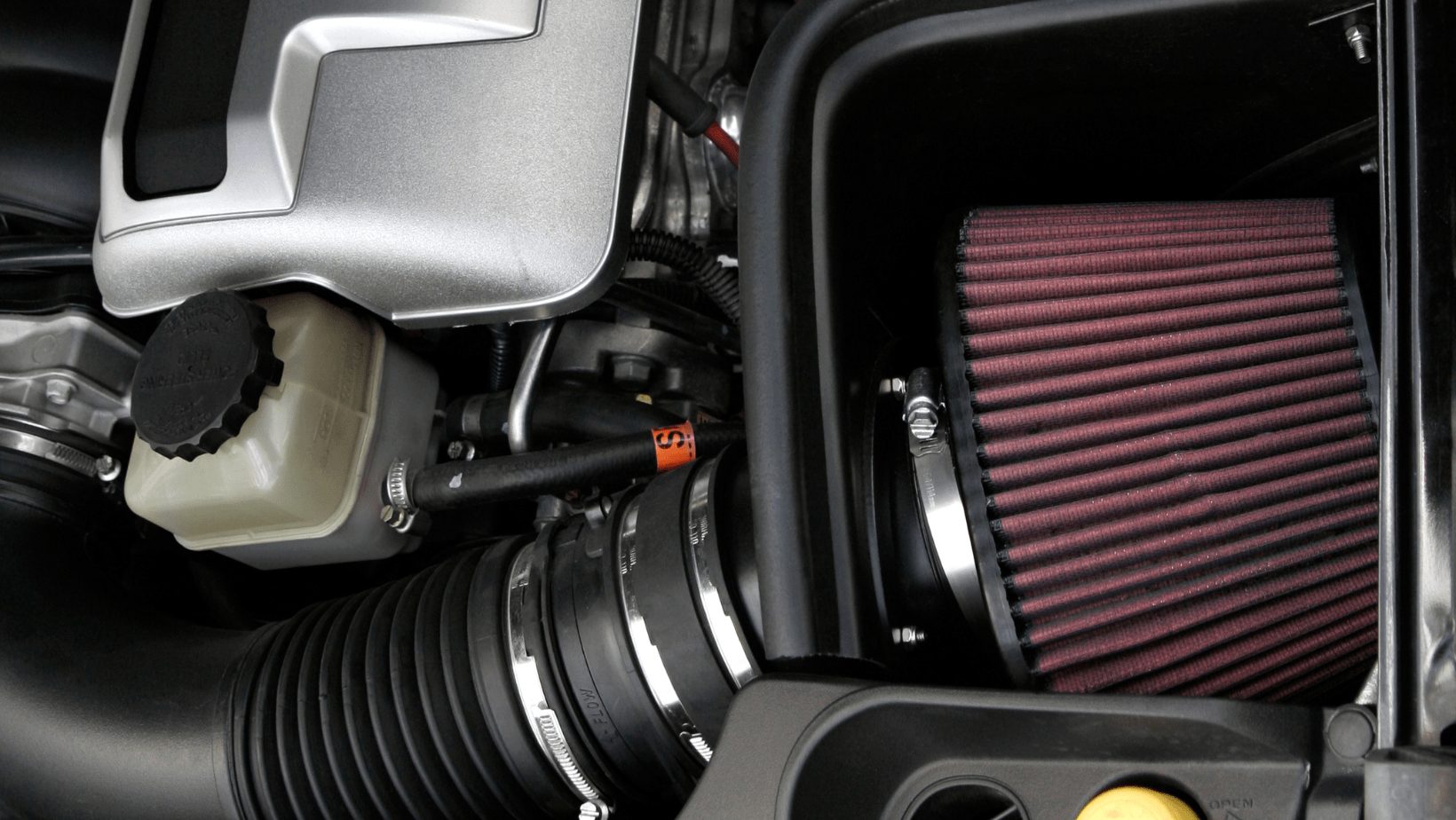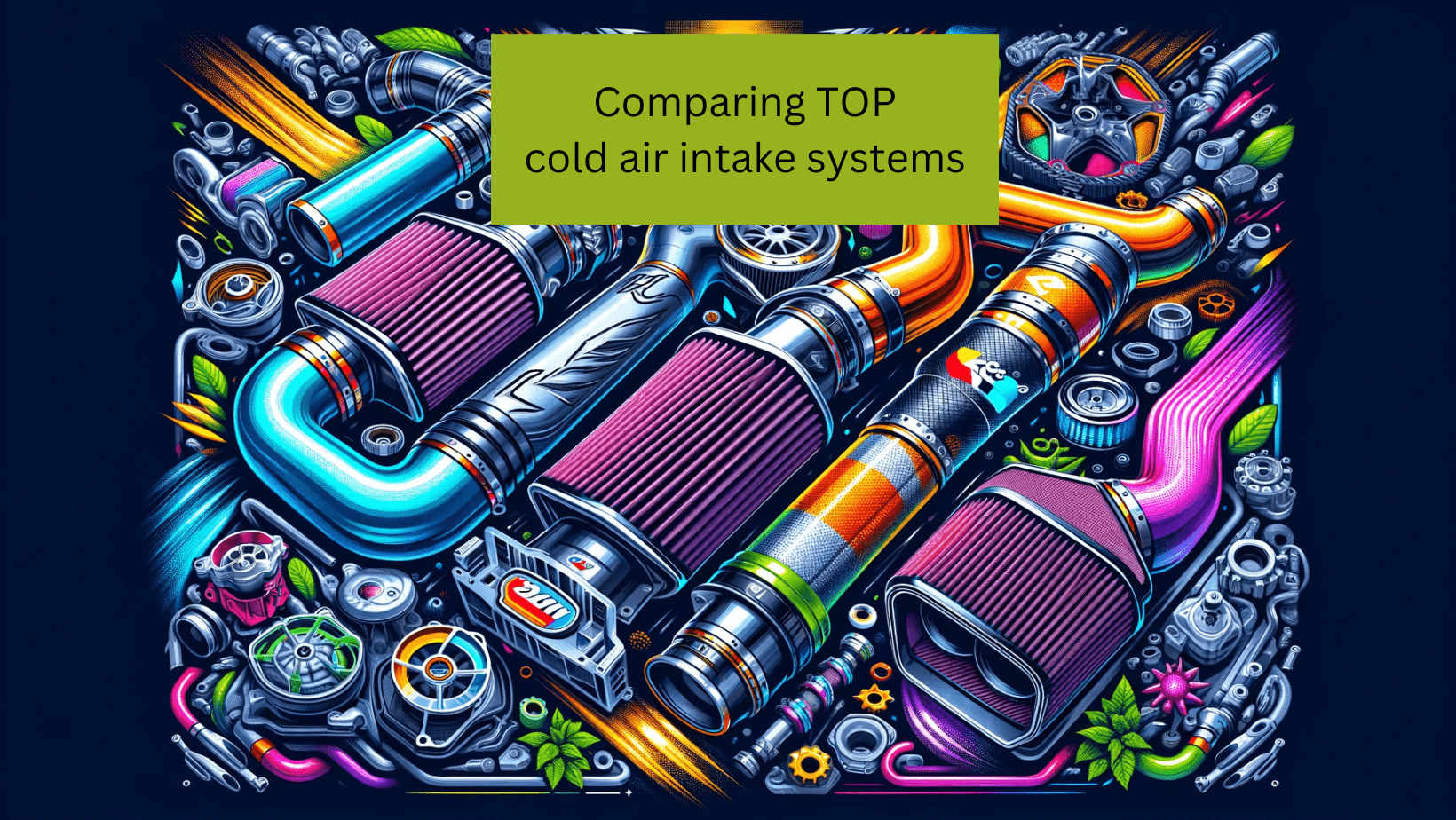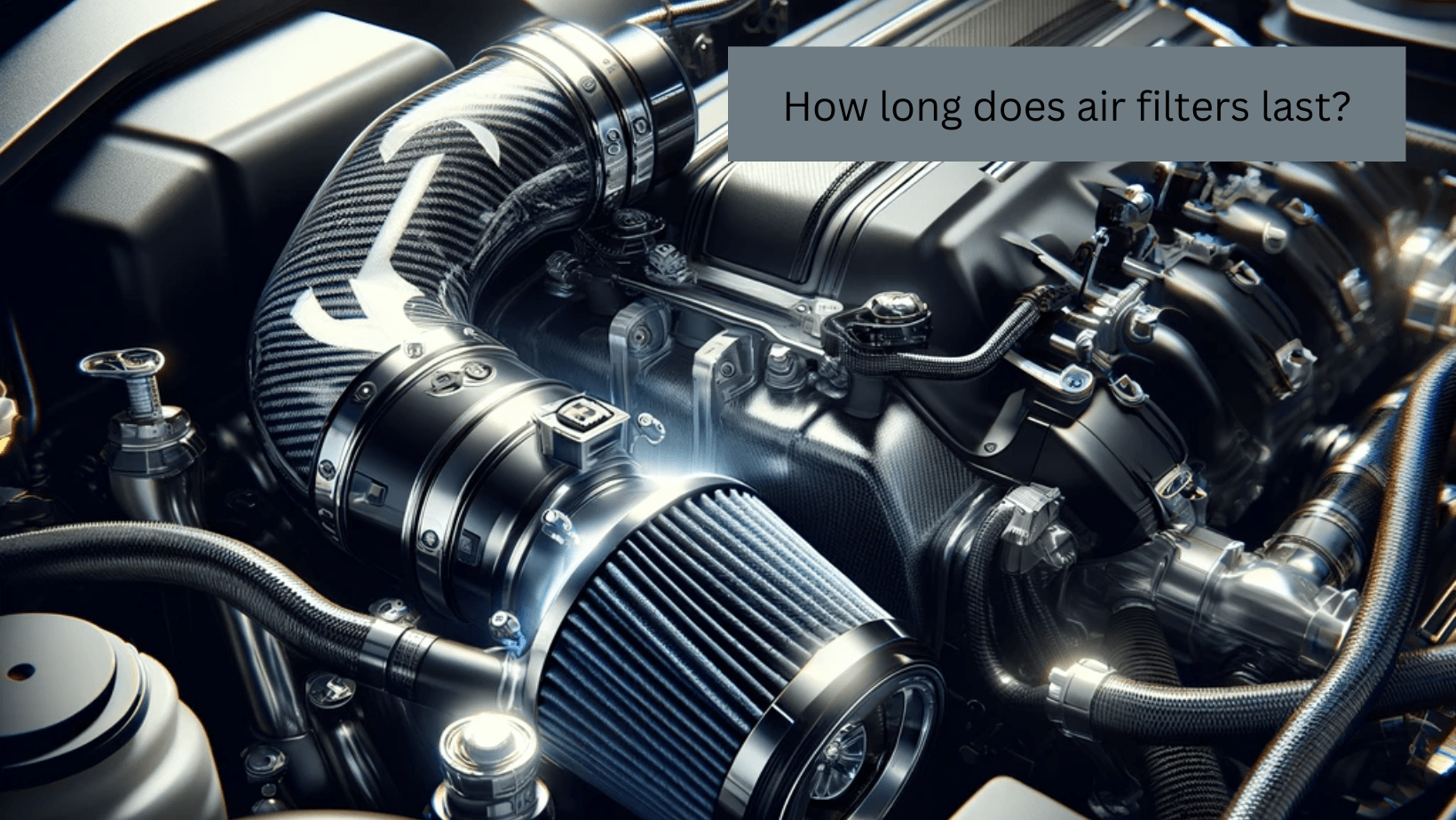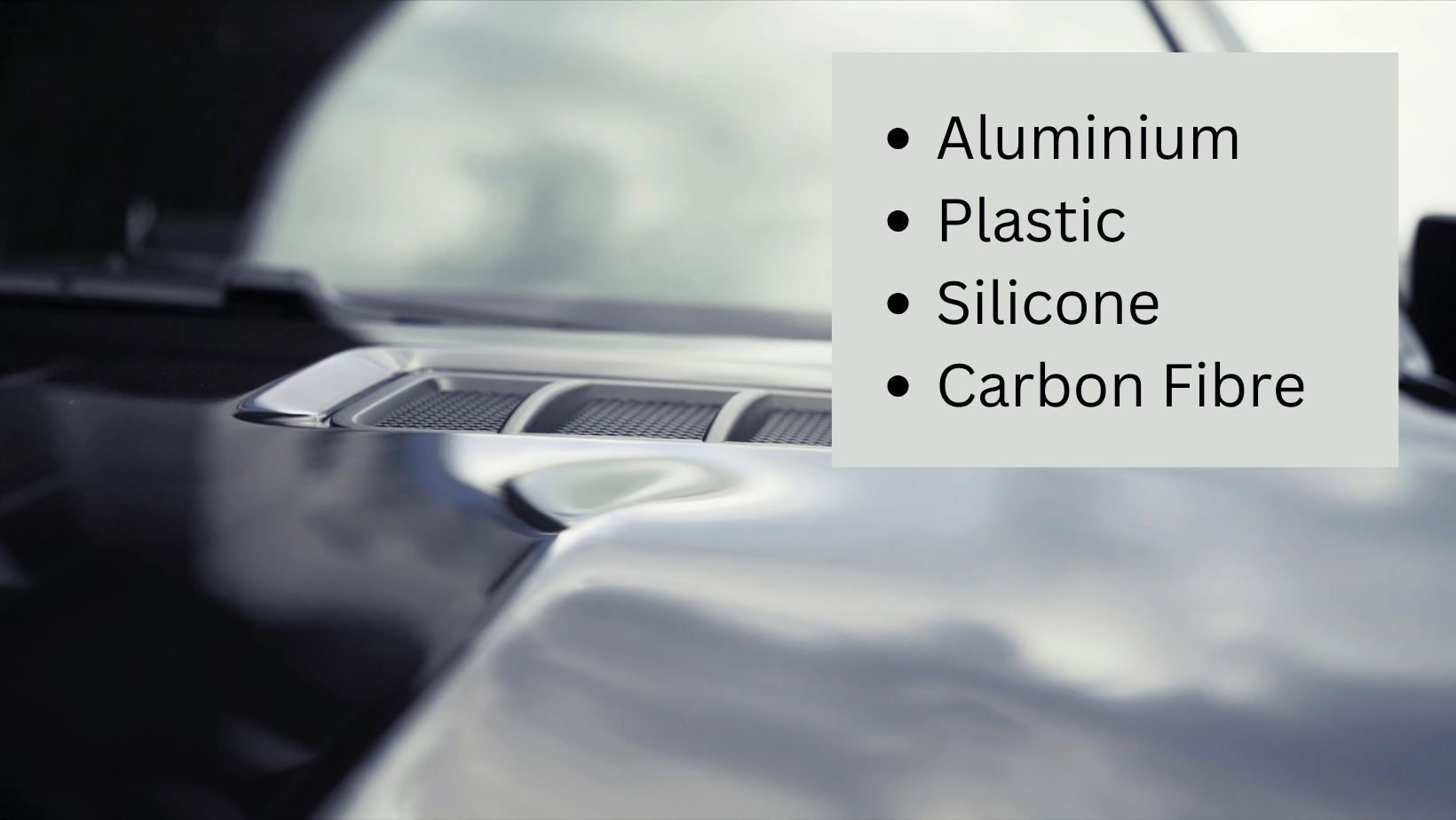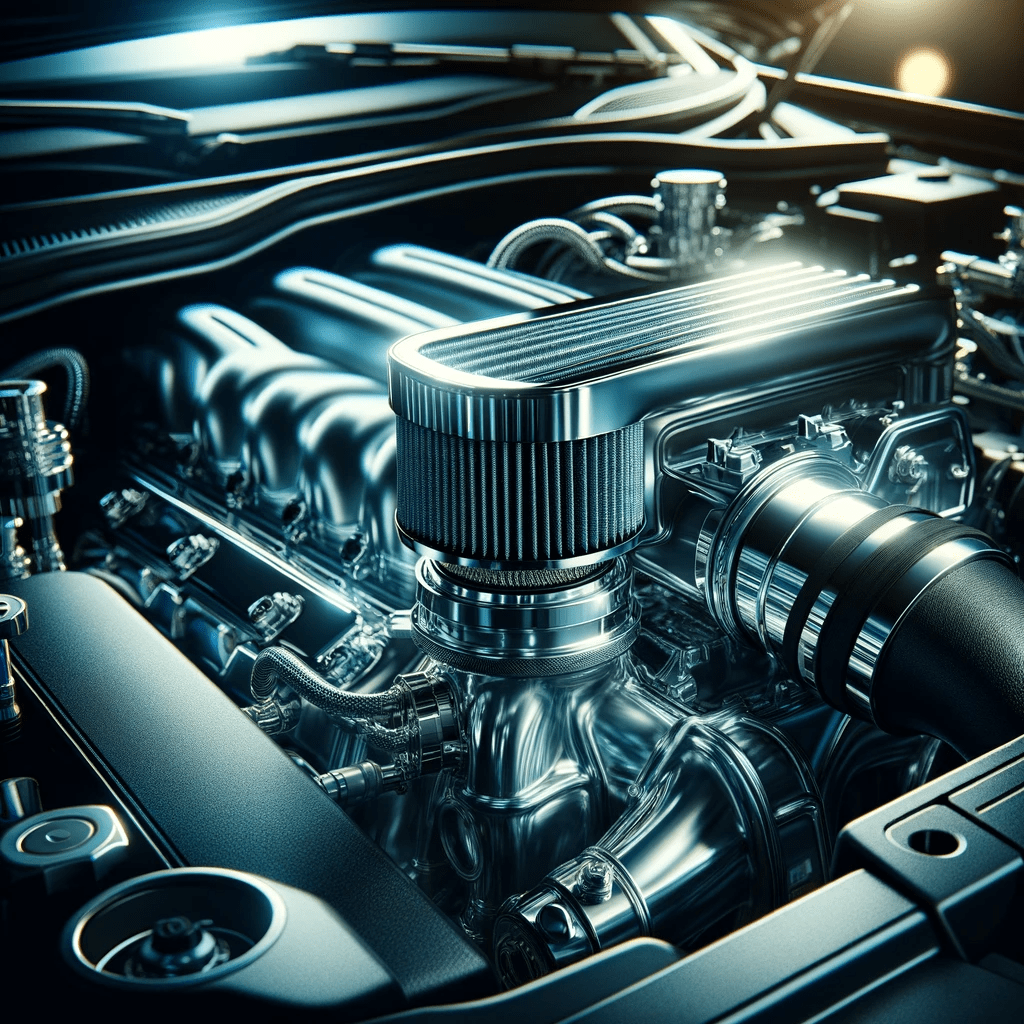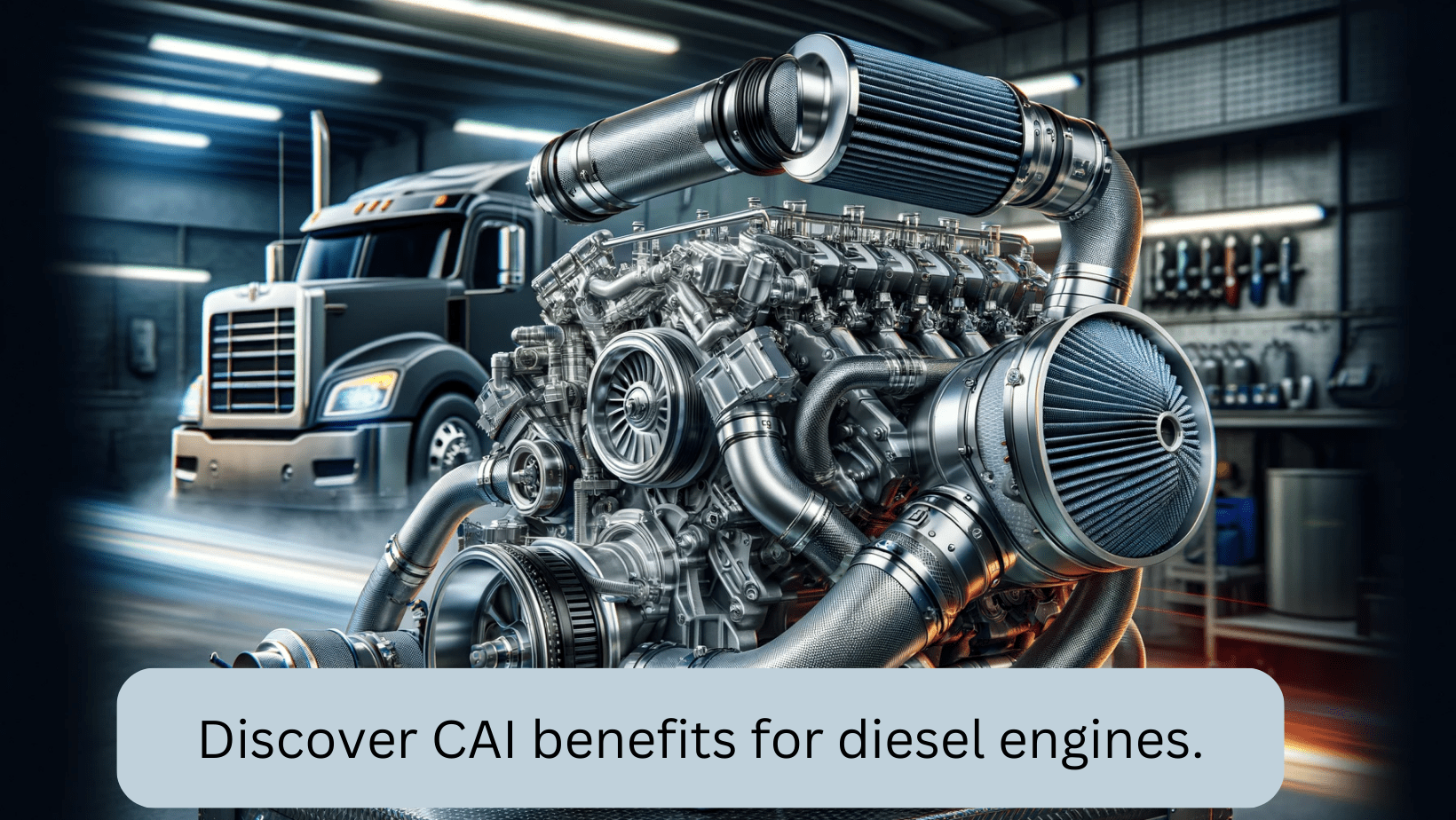
Key Takeaways
| Benefit | Description | Impact on Diesel Engines |
|---|---|---|
| Improved Fuel Economy | Increases mileage by reducing fuel needs | 1-2mpg improvement, essential for efficiency |
| Power Gains | Up to 10whp and 30wtq increases in power | Enhances engine performance |
| Turbo Efficiency | Faster turbo spool, reduced turbo stress | Contributes to overall engine health |
| Engine Responsiveness | Improved response to acceleration inputs | Offers smoother, more responsive driving |
| Sound Enhancement | Produces cool turbo sounds | Adds to the aesthetic appeal of the vehicle |
Unveiling the Advantages of Cold Air Intake Systems for Diesel Engines
The integration of a cold air intake (CAI) system into diesel engines has become a popular modification among automotive enthusiasts and professionals alike. But what exactly does this modification bring to the table, especially for diesel-powered vehicles? Understanding the benefits of a CAI system can help vehicle owners make informed decisions about optimizing their engine’s performance and efficiency.
Fuel Efficiency: A Primary Gain
One of the most compelling advantages of installing a cold air intake in diesel engines is the significant improvement in fuel economy. This system enhances mileage by ensuring that the engine receives a steady and cooler flow of air, leading to more efficient combustion. The oxygen-rich air from the CAI means less fuel is needed to generate the same amount of power, ultimately resulting in better mileage. Reports indicate a notable 1-2 miles per gallon improvement, which, over time, translates into substantial fuel savings.
Discover more about Cold Air Intake Fuel Efficiency Improvements.
Boosting Power and Performance
The addition of a CAI to diesel engines also leads to noticeable power gains. Various studies and reports suggest increases ranging from 5-10 wheel horsepower (whp) and 20-30 wheel torque (wtq). This increase in power is particularly beneficial for those who use their diesel vehicles for more demanding tasks, such as towing or carrying heavy loads. The improvement in power output not only enhances the driving experience but also contributes to the overall health and longevity of the engine.
Learn more about the Benefits of Cold Air Intake for Performance Gains.
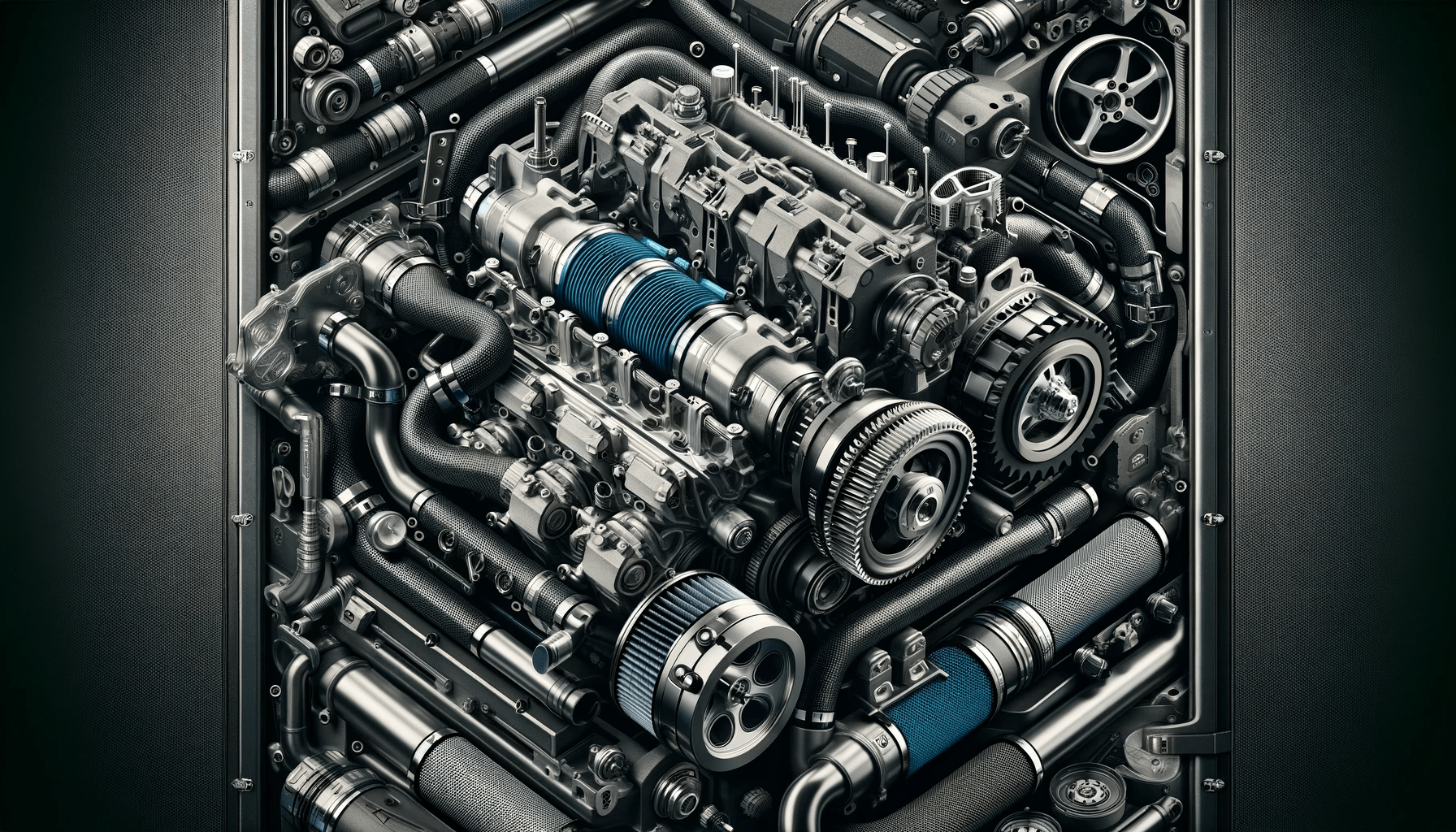
Enhancing Turbo Efficiency and Engine Responsiveness
For diesel engines equipped with turbochargers, a CAI can significantly improve turbo efficiency. This improvement includes faster turbo spool times and reduced stress on the turbo system. A more efficient turbo system directly contributes to better engine performance, ensuring that power is available when needed. Additionally, the enhanced engine responsiveness provides a smoother and more engaging driving experience, particularly noticeable during acceleration.
Explore the impact on turbochargers in Turbocharger Performance Boost.
The Auditory Appeal: Cool Turbo Sounds
While not a performance benefit per se, the cool turbo sounds that come with a CAI installation are a delightful perk for many diesel engine owners. This auditory enhancement adds an element of excitement and character to the vehicle, making the driving experience more enjoyable. It’s a unique aspect that combines performance with aesthetics, appealing to car enthusiasts who appreciate every facet of their vehicle.
Learn about the auditory enhancements in Cold Air Intake Sound Increases Your Car’s Sound.
Case Studies: Real-World Impact of Cold Air Intakes on Diesel Engines
The Powerhouse Transformation: 6.7 Cummins
The 6.7 Cummins engine, renowned for its robust performance, serves as a prime example of how cold air intakes can revolutionize diesel engine efficiency. Upgrades to the intake system in these engines have resulted in power gains of up to 10whp and 30wtq. Not only does this enhance the engine’s raw power, but it also significantly improves turbo efficiency, reducing stress on the turbocharger. This transformation is particularly beneficial for those using their vehicles in high-demand situations, such as towing or high-performance driving.
For more insights into this, check out Cold Air Intake for 6.7 Cummins.
Ford 6.7L and 6.0 Powerstroke: A Study in Efficiency
Ford’s 6.7L and 6.0 Powerstroke engines also demonstrate the substantial impact of cold air intake systems. These engines have seen performance boosts of 5-12whp and 20-30wtq post-installation. The improvement in fuel economy, typically ranging between 1-2mpg, is especially noteworthy for long-haul drivers who value efficiency. Additionally, these upgrades lead to faster turbo spool and better overall turbo efficiency, which is crucial for maintaining engine health over time.
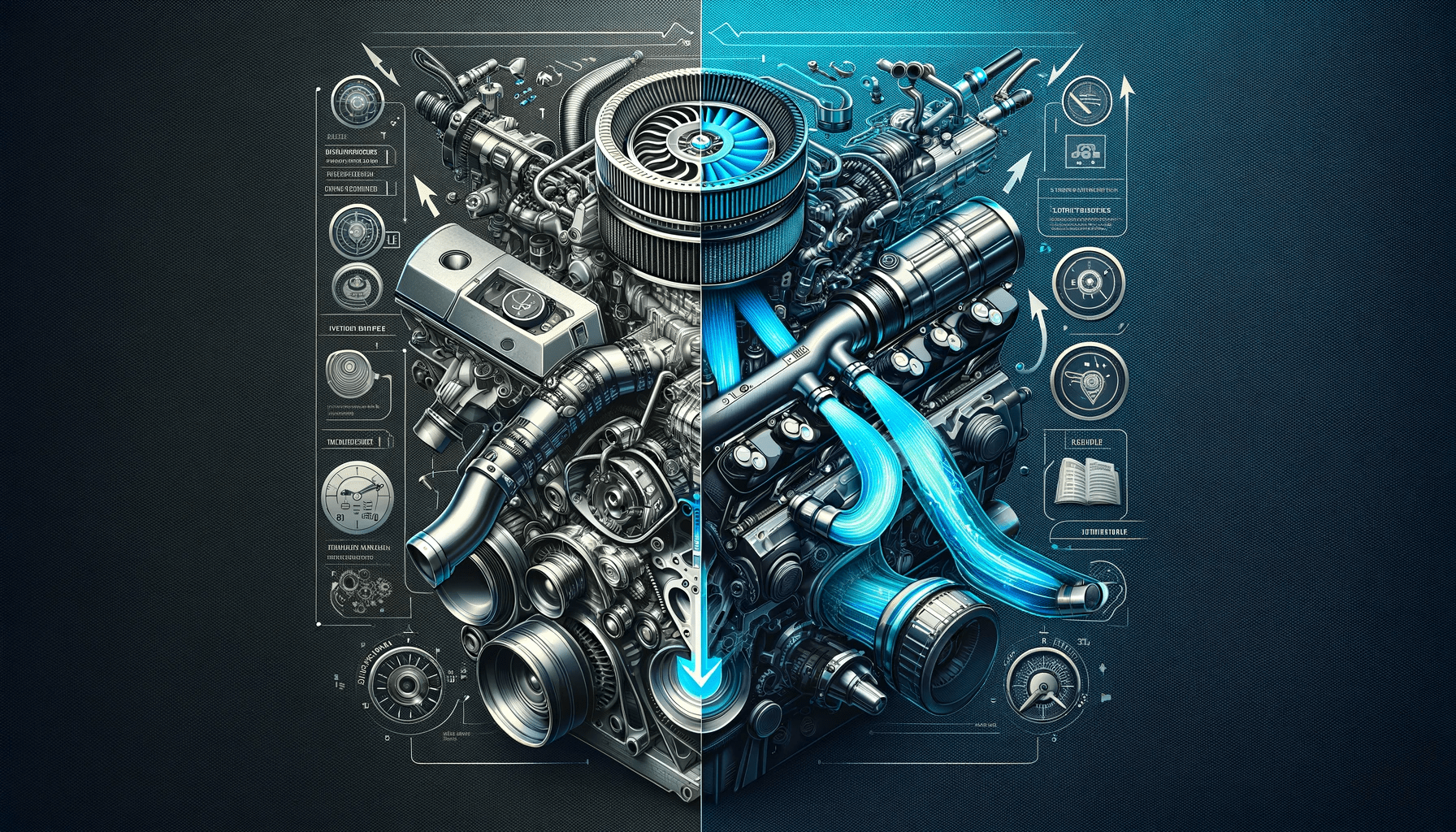
Discover more about specific models in Cold Air Intake for 6.0 Powerstroke and Cold Air Intake for 6.7 Powerstroke.
Enhanced Responsiveness and Sound in Everyday Driving
Apart from the tangible benefits in power and efficiency, cold air intakes contribute to a more responsive and enjoyable driving experience. This is evident in everyday driving situations where improved throttle response and the distinct sound of a more efficient engine add to the pleasure of driving a diesel vehicle. The cold air intake not only enhances the functional aspects of the engine but also contributes to the overall driving experience through these sensory enhancements.
Explore how these modifications impact throttle response in Exploring Throttle Response Improvement.
Conclusion about benefits for diesel engines
In conclusion, the benefits of installing a cold air intake system in diesel engines are multi-faceted, encompassing improvements in fuel efficiency, power, turbo efficiency, and even adding an aesthetic appeal through enhanced sound. These advantages make CAI systems a popular choice among diesel vehicle owners looking to optimize their engine’s performance and efficiency.
